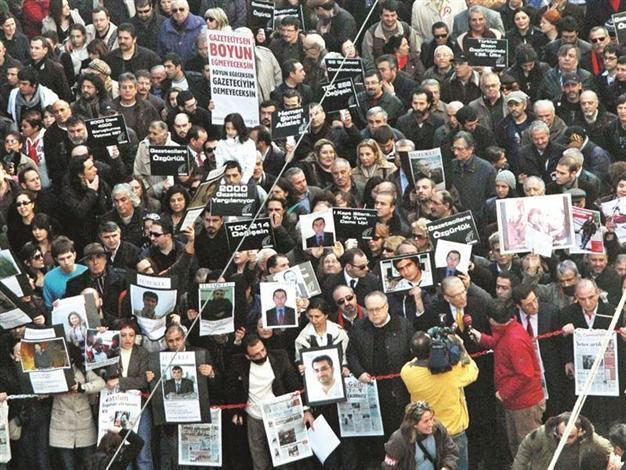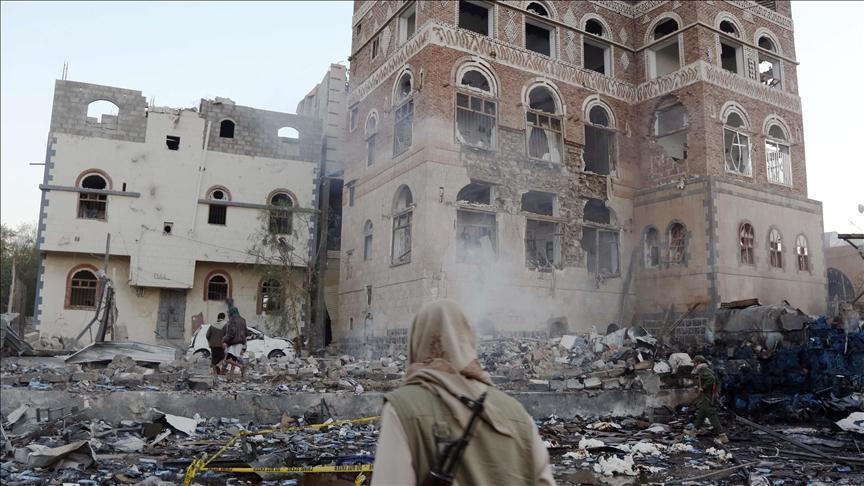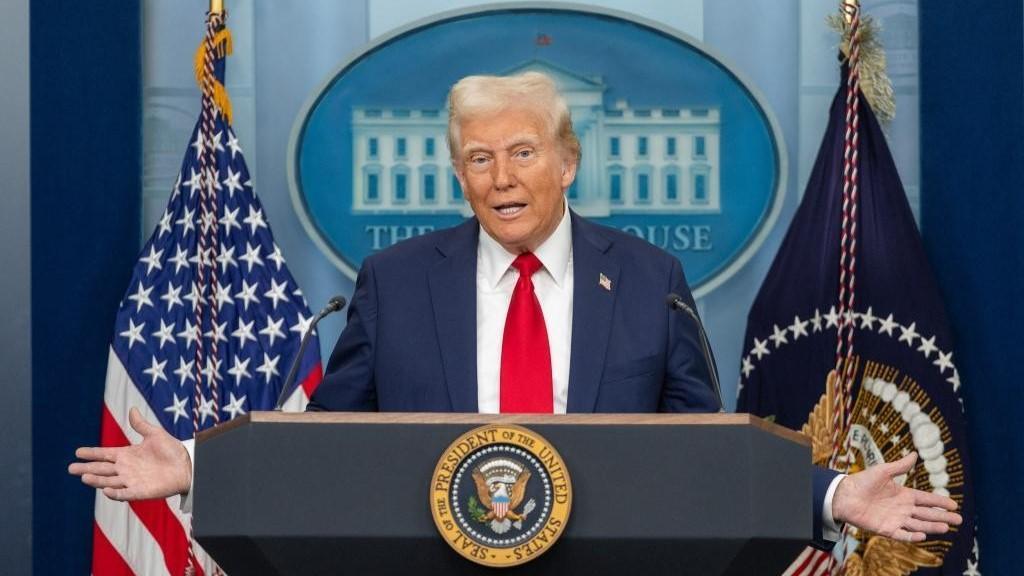Watchdog calls on gov’t to free activists, scribes
ISTANBUL - Hürriyet Daily News

Activists hold pictures of jailed journalists in a protest. Turkey’s human rights violations are pinned in an HRW report. DAILY NEWS photo, Hasan ALTINIŞIK
Turkey’s misuse of anti-terror laws is the reason Kurdish activists, students and journalists are behind bars, according to the 2013 World Report of the Human Rights Watch, which was published yesterday and drew attention to Turkey’s chronic human rights violations.“If the Turkish government is sincere in solving the Kurdish problem, it would be a positive first step to release the thousands of peaceful Kurdish activists, journalists, human-rights defenders, unionists and students,” Human Rights Watch’s expert on Turkey, Emma Sinclair-Webb said in a statement yesterday.
According to the report, Turkey’s ruling Justice and Development Party (AKP) government maintained economic growth in 2012 despite some slowdown and kept a strong focus on stepping into a key role in the region, but failed to take convincing steps toward addressing the country’s worsening domestic human rights record and democratic deficit.
Terror laws
“Prosecutors and courts continued to use terrorism laws to prosecute and prolong the incarceration of thousands of Kurdish political activists, human-rights defenders, students, journalists and trade unionists,” it stated.
Abuse of the right to a fair trial became one of the most remarkable headlines of the report.
“Thousands charged with alleged terrorism offenses remained in prison throughout their trials. … Some face terrorism charges for activities amounting to exercising their right to non-violent expression and association,” the report said.
The hit TV series, “Magnificent Century” (Muhteşem Yüzyıl), and other serials criticized by politicians were also mentioned within the report.
“Politicians’ intolerance against any opposition voices, even TV serials, and filing of defamation case causes a permanent atmosphere disincentive for freedom of speech,” the report said.
Excessive use of violence by the police was another subject discussed in the Human Rights Watch’s report. Authorities often mask the problem by charging individuals who report police abuse with resisting police dispersal or disobeying police orders rather than examining their complaints, according to the HRW.
The ongoing coup-plot cases Ergenekon and Balyoz (Sledgehammer) were also criticized for failing to uphold the right to a fair trial principle.
“All defendants were appealing their sentences at [the time of] this writing. The serious fair trial concerns in these cases and the prolonged pre-trial detention of some defendants overshadowed the important contribution of these efforts to combat impunity of the military,” the report read.
Academic immunity woes
Radikal
Arizona University’s Middle East Studies Association (MESA) has sent letters to Turkish Prime Minister Recep Tayyip Erdoğan since 2011 to express its concern over the ongoing academic immunity problems in Turkish universities.
The arrests and detentions of academics and scholars, the intimidation and persecution of students, and the allegations of censorship at several Turkish universities are among the subjects
of the eight letters. Through the Committee on Academic Freedom, MESA monitors infringements to academic freedom in departments related to the Middle East and North Africa worldwide.
Laurie Brand, chair of the committee, said they were seriously concerned about the situation in Turkey and stressed that incidents violating academic immunity were increasing everyday.
















